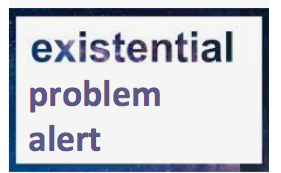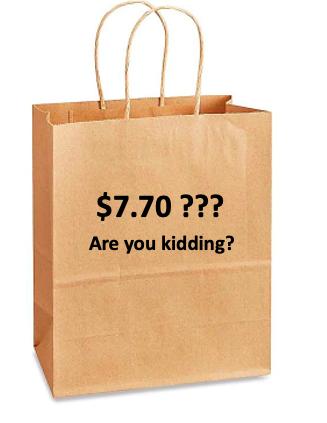I was rather intrigued by a recent paper in Anaesthesia News. Why? The title: "Education and Easy Disposal Option Lower Opioid Supply." In other words, the more opioids that get thrown away the fewer remain behind. Obvious? Perhaps.
I would argue that we need better disposal methods for opioids like a fulminating case of crabs but Rachael A. Haverland, MD, MS, a gynecologic surgery fellow at Mayo Clinic in Scottsdale, AZ, and colleagues believe otherwise:
“I think the public is becoming more aware of the opioid crisis... But we noticed that although our patients knew about the problem, they didn’t know what to do about or how to dispose of their medication".
Rachael A. Haverland, MD, MS
Maybe the public is becoming aware of the "opioid crisis," but this paper indicates that the authors aren't. It has been shown conclusively that prescription opioids have very little to do with addiction and overdose deaths (1,2,3). But we are being force-fed the same old song – that the US is swimming in Vicodin and Percocet pills. And if only we could get rid of them, by disposal or returning them to pharmacies, that we could put a stop to the 70+ thousand overdose deaths per year. It's a bunch of nonsense. The four drugs that were the "top killers" in 2017 were fentanyl, heroin, cocaine, and methamphetamine - all illegal street drugs. Oxycodone was a distant sixth. Hydrocodone was an even more distant ninth – just above Benadryl, which was 10th.
If you want to dispose of or return your unused opioids feel free to do so, but doesn't that seem a bit like returning the unused portion of your paycheck to your employer? "Well boss, I didn't use all the money this month, so here's what I didn't need."
My personal opinion is that you have to be thoroughly out of your gourd to give back unused opioids (4). As millions of pain patients across the country have learned the hard way, you cannot count on getting more no matter what's wrong with you.
I'm not alone. Dr. Richard (Red) Lawhern, perhaps the most tenacious pain advocate out there, the co-founder and secretary of Alliance for the Treatment of Intractable Pain, and an ACSH advisor had this to say:
"A pain patient these days would have to be NUTS to turn in unused opioid medications. Millions of people have been involuntarily tapered off opioid pain pills due to a reign of terror conducted by the US DEA, State drug enforcement agencies, and State medical boards. Doctors are is terrified of being persecuted by government authorities who can ruin their practice without even going to court, even though they've done nothing wrong."
Richard (Red) Lawhern, Ph.D., Private Communication, Dec. 3rd, 2020
The premise of Dr. Haverland's article is that most women who had undergone gynecological surgery were unaware of how to dispose of unused pills; 22 out of 35 of them who participated in this exercise never received information from their physicians about how to do so. Only 52% of the patients had disposed of extra opioid pills, but after indoctrination education, 93% of the women chose to do so.
There are various methods for disposal of unused medications. Among them is mixing medications with an unpalatable substance—such as dirt, cat litter or coffee grounds—and placing it in a sealed plastic bag. Previous research has shown that many people have a poor understanding of the proper means for disposing of medications, and that simply providing educational materials can increase proper disposal.

Here's something to ponder...
Most of the women agreed to pay an average of $7.70 for an empty drug disposal bag to get rid of the pills. The economics here are a bit strange. Right now a bag of heroin costs as little as $5-10 in some parts of the country.
This can only make me wonder what might happen if someone bought a $7.50 bag of heroin on the street and then changed his/her mind about using it. Would they then spend an extra $7.70 for a bag to get rid of it?
Not only is the bag a waste of medicine, but it's also a waste of money. The FDA recommends just flushing the pills down the toilet. Although this may seem to be an environmental no-no, it really isn't. Most opioids are metabolized and then excreted in the urine so the drug is going to a wastewater plant anyhow, whether you flush the pills or run them through your body first.
What about the shelf life of the drug?
One argument for the disposal of drugs is that if they sit around too long they decompose, or degrade and become dangerous (as if the $7.50 bag of heroin isn't?). But there are shelf lives and there are shelf lives, depending on the drug. The (typically) one-year expiration date that you see on labels bears little resemblance to reality; it's just a required number. In reality, most pills or capsules if kept dry and out of the light, are stable for much longer than a year (5). So, will opioids go bad? Not anytime soon...
"Current opioid drugs lose only ~1% of their potency per year (a ~70-year potency half-life)."
Source: Elysium Therapeutics
So much for that issue.
Lessons learned?
If life made sense people wouldn't have to give these things a second thought. They would take whatever they needed and get rid of the rest, knowing that if they need them again (for pain) a quick call to the doctor would suffice. Not any longer. If you call a GP for opioids you will have a better chance of getting enriched uranium-235 than the pills. They will tell you to take thoroughly useless Tylenol. You will probably be referred to a pain specialist. Good luck finding one, especially one that is taking new patients. If their license hasn't been suspended by a state medical board or are not facing legal action, they know that Big Stupid Brother is looking over both shoulders and counting every damn pill.
So I'll pass on the $7.70 bags. And if I happen to forget to dispose of a couple of old bottles of Percocet cut me a break. My memory isn't what it used to be.
NOTES:
(1) Dr. Jeff Singer: "Evidence Pours More Cold Water On The False Narrative That Prescriptions Caused The Opioid Crisis
(2) BMJ: "Post surgical prescriptions for opioid-naive patients and association with overdose and misuse: a retrospective cohort study"
(3) J. Bloom, ACSH: "It's The Fentanyl, Stupid. But Politicians Still Target Pain Pills."
(4) It goes without saying that any opioids you might hang onto must be hidden and locked away. No one wants children to accidentally find a and try a Percocet pill. This can be deadly. And no one wants teens who may be in the mood to party to get their hands on them either.
(5) But not for antibiotics. Old antibiotics should not be used.




